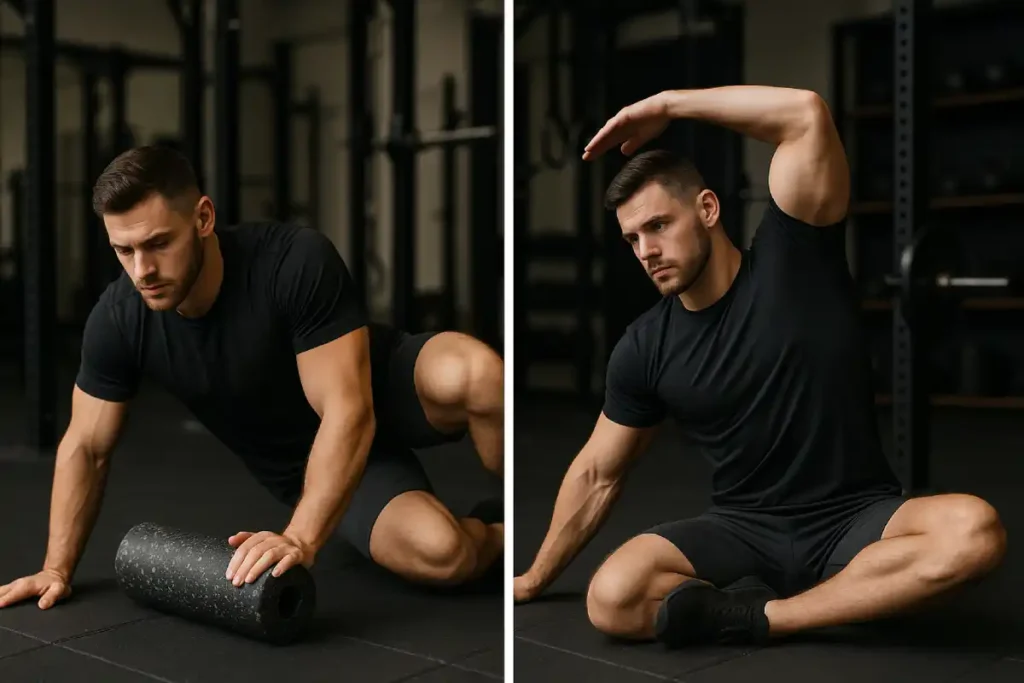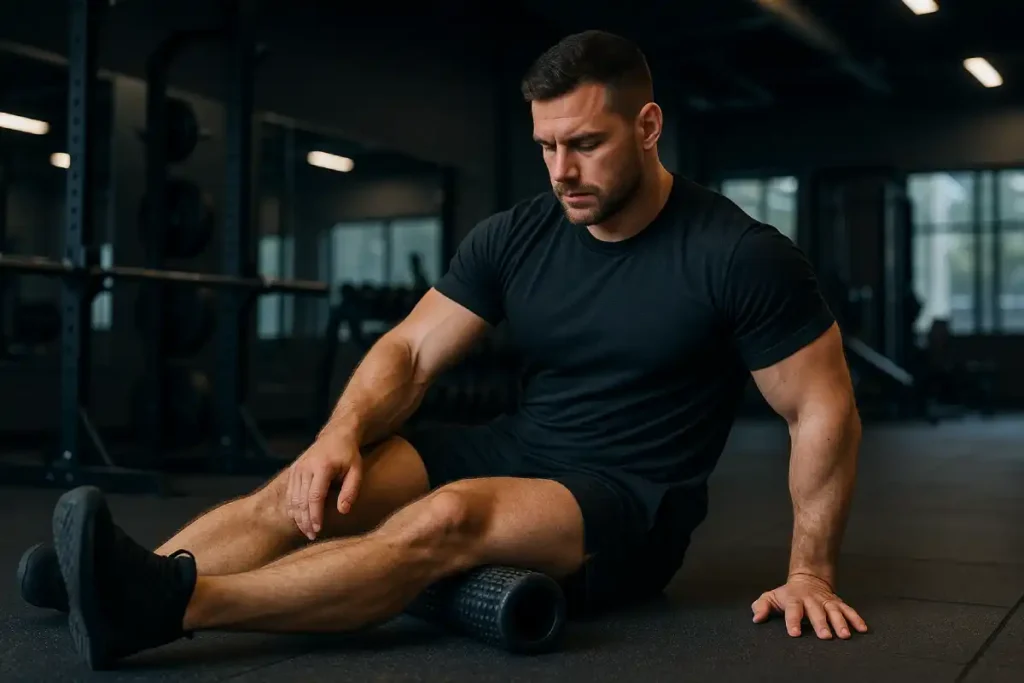Foam Rolling vs Stretching Benefits for Sore Muscles
Introduction
You crush a workout. The next morning, your muscles scream. You ask yourself: Should I grab the foam roller or hit some stretches?
Here’s the truth-both tools have their place. The key is knowing when to use them. As a personal trainer in Kamloops, I see men ask this question every single week. Let’s cut through the noise and get clear on the foam rolling vs stretching benefits so you can recover smarter, train harder, and stay strong.
Why Recovery Matters for Men Who Train Hard
Training breaks muscle down. Recovery builds it back stronger. Ignore recovery and you’ll stall your gains, stay sore longer, and even risk injury.
Studies show most recreational lifters in Canada and the U.S. don’t take recovery seriously. That’s why so many guys hit plateaus. Recovery isn’t weakness-it’s where strength is built.
Foam Rolling Benefits for Sore Muscles
Foam rolling works like a deep tissue massage without the price tag. Roll over tight spots and you’ll feel immediate release.
Key benefits:
- Increases blood flow and oxygen to muscles.
- Reduces delayed onset muscle soreness (DOMS).
- Helps break up knots and adhesions.
- Improves flexibility when done consistently (does foam rolling improve flexibility).
Foam rolling is best right after lifting or before bed if you’re tight.
 Stretching Benefits for Recovery
Stretching Benefits for Recovery
Stretching doesn’t just make you “more flexible.” It’s about performance and long-term joint health.
Static stretching: Holding positions after training. Helps relax the body and lengthen muscles. Dynamic stretching: Controlled movements before training. Warms the body up and primes it for action.
Key benefits:
- Increases range of motion.
- Improves posture and mobility.
- Reduces risk of injury long-term.
- Supports recovery and muscle relaxation (benefits of stretching for recovery).
Think of stretching as the long game-keeping your body moving well for years.
Foam Rolling vs Stretching – When to Use Each
Here’s the breakdown:
- Foam rolling: Best for immediate relief, easing soreness, and loosening tight muscles.
- Stretching: Best for building long-term flexibility and preventing injuries.
- Together: Roll first to break up tightness, then stretch to lock in the new range of motion.
That’s why athletes often combine both. If you’re wondering when to stretch vs foam roll-the answer is both, but in the right order.
Real-Life Example from the Gym
One of my clients here in Kamloops used to skip recovery completely. He’d show up stiff, sore, and frustrated. We added 5 minutes of foam rolling after workouts and 10 minutes of stretching before bed. Within two weeks he moved better, lifted stronger, and stopped complaining about back tightness.
Recovery doesn’t just feel good-it makes you stronger.
Practical Recovery Routine for Men
Here’s a simple recovery routine you can steal:
- Foam roll major muscle groups after training (quads, hamstrings, glutes, lats).
- Static stretch 10 minutes before bed to reset your body.
- Dynamic warm-up before lifting or sports.
- Don’t forget hydration and sleep-the most underrated recovery tools.
This routine covers the best of both worlds (post-workout recovery techniques).
Conclusion
Recovery is not optional. It’s the secret weapon that separates the guys who keep making progress from the ones who stay stuck.
Foam rolling gives you quick relief. Stretching sets you up for long-term strength and mobility. Together? They make you unstoppable.
If you’re in Kamloops and want a structured recovery plan built into your workouts, reach out to me. As a personal trainer, I’ll show you how to recover smarter, build muscle, and keep pushing forward without burning out.
Strong muscles need smart recovery. Start today.




